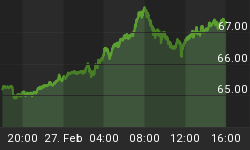Japan has 30 different words to say ‘work’. Karoshi is not one of them but it is related, as Japan is the only country in the world that has an actual word for death by overworking.
It also has some of the longest working hours in the world. At the same time, it has one of the lowest productivity rates among the developed nations.
And then this summer, the Japanese unit of US-based Microsoft trialed a radical idea for Japan: working less.
Among other things, the 2,300-workforce company closed its offices every Friday in August, restricted meetings to a maximum of 30 minutes, and limited the number of participants at meetings to five.
All that without decreasing pay.
As part of the program, the company had also subsidized family vacations for employees up to $900.
The company reported that the results were positive, with sales per employee rising almost 40 percent from August last year, electricity consumption down by a quarter and paper usage cut in half.
Microsoft’s experiment comes as Japan's government is pushing for more flexible work styles, urging businesses to accept telecommuting, different part-time schedules and off-peak commuting.
In its first white paper on karoshi back in 2016, the Japanese government said one in five employees were at risk of death from overwork. The report found that more than 20 percent of people in a survey of 10,000 Japanese workers said they worked at least 80 hours of overtime a month.
For comparison, in the US, The Bureau of Labor Statistics reported that an average workweek for full-time workers was 42.5 hours in 2018.
Eighty hours of overtime a month is regarded as the threshold above which you have an increased chance of dying. In Japan, some 12 percent of employees are breaking the 100-hours per month mark.
The government is trying to curb cases of karoshi through policies that give people more time off at work. Right after the 2016 report, the government announced its Premium Friday plan where workers would get the chance to leave at 3 p.m. on the last Friday of each month.
Related: A Recession Would Devastate The U.S. Oil Industry
Apparently, the plan is proving as effective as only 11 percent of employees get home early.
Many private companies have tried to minimize lethal overworking cases by offering breakfast to those arriving early and discouraging them from staying too late (by shutting the lights off).
The government and private companies also want workers to take more holidays, but currently, about 35 percent don't take any holiday time at all.
However, a different experiment conducted last year by the Harvard Business Review showed that shorter workdays--from the average 8-hour down to a 6-hour day--might lead to even greater productivity.
This approach was even adopted by Presidential candidate Bernie Sanders. Last month, Senator Sanders said that a shorter workweek was an idea that his campaign was investigating in order to improve the wellbeing of American workers.
However, this is going to be hard to sell in the US. Sanders may be fond of Scandinavian work culture and workers’ benefits but the “socialist heaven” doesn’t necessarily resound well to all American ears.
By Josh Owens for Safehaven.com
More Top Reads From Safehaven.com:
















